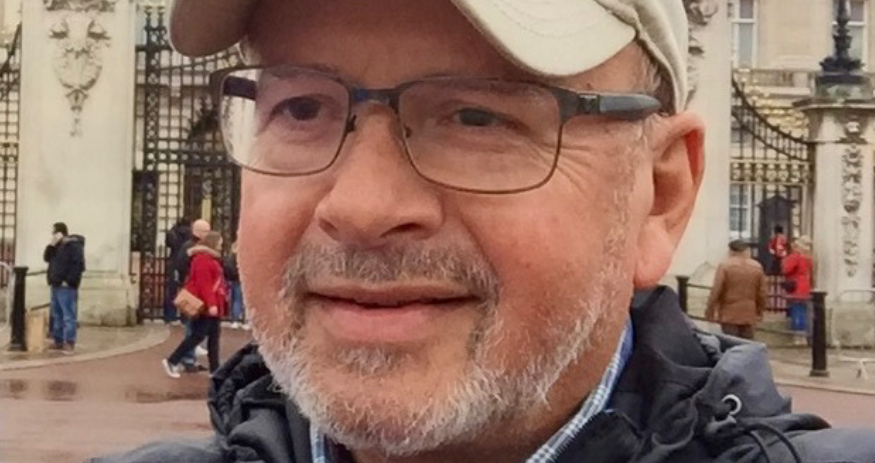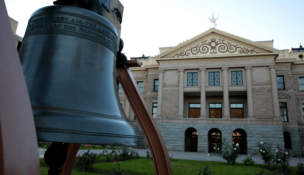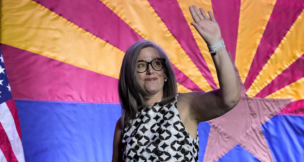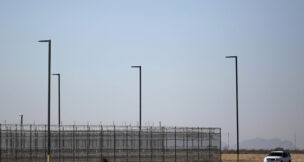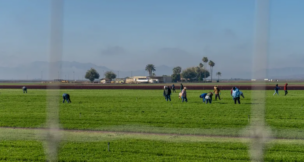Citizens Clean Elections Commission defends debate policy excluding Greens
Howard Fischer, Capitol Media Services//September 13, 2024//
Citizens Clean Elections Commission defends debate policy excluding Greens
Howard Fischer, Capitol Media Services//September 13, 2024//
PHOENIX — The head of the Citizens Clean Elections Commission insists his agency violated no laws or rules in refusing to let the Green Party nominee for U.S. Senate participate in the commission-sponsored debate.
In a letter to Sen. Jake Hoffman, Tom Collins said there is a reasonable basis for limiting the planned Oct. 9 event to Democrat Ruben Gallego and Republican Kari Lake. He said allowing Eduardo Quintana of the Green Party to be on the same stage would dilute the time within the 56-minute debate for viewers to hear from the other candidates who have shown significant public support based on the number of votes they got in their respective primaries.
Collins also contends that, strictly speaking, Quintana is not a “candidate,” at least under commission rules, who can participate in a debate.
“It appears that Mr. Quintana has no campaign committee registered with the Federal Elections Commission as required by federal law for candidates to raise campaign funds,” he told Hoffman.
Collins also disputed Hoffman’s contention that, in excluding Quintana, the commission violated its own published rules.
He acknowledged that the rule governing debates says that write-in candidates in the general election will not be invited to participate. But Collins said that’s as far as it goes.
“The rule does not say that the commission (ITALICS) must (ROMAN) invite everyone who may appear on the general election ballot,” he said. “So the discretionary decision about who to invite to the 2024 debates did not transgress an existing administrative rule.”
And, Collins said, the decision of who to invite, by itself, does not constitute a new rule, something that would require things like public hearings and review by the Governor’s Regulatory Review Council.
All this comes in response to a request by Hoffman, who chairs the Senate Government Committee, asking Collins to explain the decision to exclude Quintana.
He specifically questioned the decision of the commission to invite only those who had received at least 1,239 votes in their party’s primary, a figure equal to 1% of all the votes cast in all the races combined.
Quintana, a write-in at the primary level, tallied just 282 votes.
But there also was no way he could have met the threshold because there are fewer than 3,400 Green Party adherents in the state. And the party chose to have a closed primary — meaning independents could not cast ballots in that race — before they knew of the commission’s new 1% minimum.
Hoffman said he wanted answers for himself and the Government Committee about why the laws requiring rule changes to be approved was not followed.
The response did not satisfy the Queen Creek Republican.
“The Clean Elections Commission clearly believes they’re above the law,” he told Capitol Media Services Friday. “It appears they chose to subvert the voter-approved process in an effort to deter participation of a candidate in a debate who will lawfully appear on the general election ballot,” referring to the 1998 ballot measure creating the commission to provide the option of public funding for candidates and requiring it to do voter education, including debates.
But he was less clear on what’s next and what, if anything, he and his committee can do about it.
“The investigation continues,” Hoffman said.
But Quintana, who said the new rule — or whatever it is — was sprung on him and the Green Party at the last minute, said he is weighing a lawsuit.
The Tucson resident does not dispute his write-in tally. But Quintana also pointed out that the Green Party had to submit about 63,000 signatures on petitions to gain ballot status for its candidates — the same legal status as the Democrats and Republicans — an indication that there is support.
There also is a political side to all of this.
Traditional thinking is that Green Party candidates take votes from Democrats while Libertarians can siphon votes from Republicans. There is, however, no Libertarian candidate in this year’s Senate race.
In a social media post, Hoffman said the change from the procedures in prior years “exposed (the commission) allegedly rigging the U.S. Senate debates to help Democrat Ruben Gallego against Republican Kari Lake.”
And Lake’s campaign committee, in its own post, said the commission “shouldn’t be disenfranchising third parties just to protect Gallego.”
But a Gallego spokeswoman said Lake agreed to the debate — under the rules that had just the two of them participating. “And now that she’s getting cold feet she wants to change the rules,” she said.
There is no way to know whether allowing Quintana to participate in the debate — and possibly gain some votes — would affect the outcome of the race.
All recent polls show Gallego with an edge, though Lake claims that while she is behind the difference is small and can be overcome.
There also is national attention because the candidates are racing to replace retiring Sen. Kyrsten Sinema. While the former Democrat reregistered as a political independent, she continued to be aligned on most issues with her former party. And the loss of the seat to a Republican could shift the balance of power in the Senate.
In his 8-page, single-spaced response to Hoffman, Collins said the decision goes beyond the legal issues he said entitle the commission to set a threshold for participation. And what it comes down to, Collins said, is fulfilling the commission’s statutory role of public education.
Up through the 2022 campaign, commission debates had been conducted at and broadcast from the studios of KAET-TV, the Phoenix PBS affiliate.
A dust-up over the station’s decision to give Democratic gubernatorial hopeful Katie Hobbs time of her own after she had refused to debate Lake led the commission to seek an alternative.
What emerged was a contract with Rieser Advertising Agency, in partnership with the Arizona Media Association, to produce and broadcast debates this year.
Collins said that is likely to get broader viewer notice, saying that 90% of association members in TV and radio have agreed to carry the event.
But there’s a flip side to all that.
Collins said the 56 minutes for debate will be without commercials, meaning the participating stations will be giving up “substantial revenue opportunities.” And he said that means the stations want some assurance that viewers will remain interested, something that might not happen if substantial air time is given to a candidate who has little public support.
Put another way, Collins said if time has to be divided among minor candidates “many Arizona broadcasters will opt out of broadcasting the debate altogether because the debate will not long appropriately dedicated its limited time to the candidates that have shown viable candidacy.
“This undermines the voter education responsibilities of the commission,” he said.
Quintana was not impressed by what Collins said about how the decision was made to set that 1% threshold.
“I don’t understand why they had a discretionary decision to exclude an entire perspective, and that’s the Green Party,” he said.

